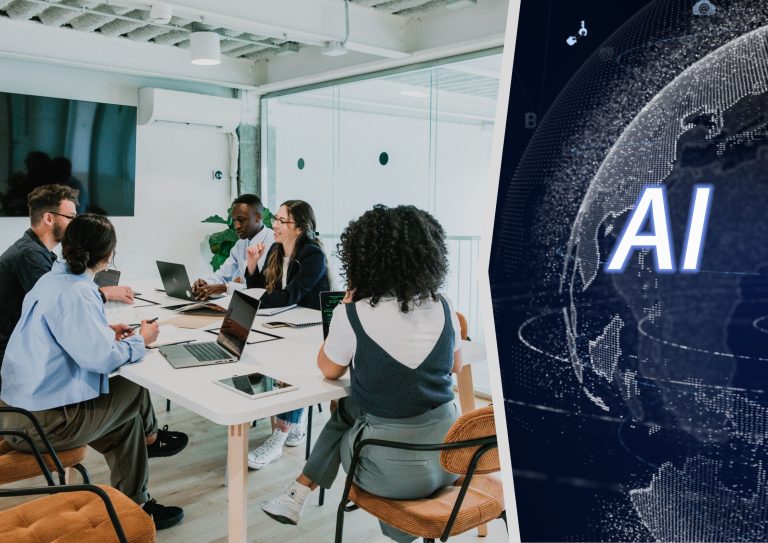The Role of AI in Transforming Translation and Localization
AI technology has revolutionized the speed and accuracy of translation services. With the help of AI, companies are now able to process large volumes of text in multiple languages with unprecedented efficiency. Advanced algorithms and machine learning models enable the rapid identification and translation of linguistic patterns, significantly reducing the time required for translation tasks. This leap in processing capability not only helps businesses work faster but also ensures consistency and quality in translations, fostering better global communication. Moreover, AI-driven translation tools are continually learning and improving, which means that the quality of translations is perpetually enhanced, leading to more reliable and contextually appropriate outcomes. The integration of Neural Machine Translation (NMT) systems exemplifies this advancement, as they utilize deep learning to provide more natural and fluent translations than ever before.

Enhancing Efficiency with AI
AI technology has been a game-changer for the translation and localization industry. It streamlines processes, reduces human error, and accelerates turnaround times. AI-powered translation tools can analyze and translate large volumes of text at speeds no human could match, allowing companies to handle more projects and expand their global reach. Large language models are particularly influential in this respect.
The Evolution of Translation and Localization Roles
The advent of AI is not replacing human experts; instead, it is creating new opportunities for professionals to add value in more strategic areas. For instance, AI-Enhanced Language Model Trainers are crucial for refining machine translation outputs, ensuring they meet the highest standards of linguistic accuracy. The role of human translators is evolving into that of post-editors who fine-tune machine-generated translations to capture nuances and cultural contexts. This shift towards a collaborative model where humans and AI work in tandem is elevating the role of translators to that of language consultants who provide insights on localization strategies and cultural intelligence.
New Positions in the AI Era
With the growth of AI, new career opportunities are being created. For instance, Translation Technology Strategists focus on developing and implementing AI-driven translation solutions. AI Language Quality Analysts work to improve the accuracy of machine translations, ensuring that they meet high-quality standards. The ethical considerations of AI, particularly regarding data privacy, are also critical, as you can explore here.
AI Ethics Compliance Managers are responsible for overseeing the ethical use of AI within the industry, while Client AI Integration Consultants help businesses integrate AI solutions seamlessly. Machine Learning Localization Engineers specialize in tailoring AI algorithms for localization needs, and Conversational Interface Designers focus on creating user-friendly AI-powered interfaces.
Real-World Impact
The impact of AI on the translation and localization industry is not just theoretical. Companies that embrace AI are already seeing tangible benefits, such as increased productivity, improved accuracy, and enhanced customer satisfaction. By harnessing the power of AI, businesses are not only working better but also positioning themselves at the forefront of industry innovation:
- AI tools automate repetitive tasks, cutting down translation times significantly.
- AI systems provide highly precise translations, thanks to advanced algorithms and extensive linguistic data.
- AI also boosts customer satisfaction by enabling faster and more accurate translations, improving client experiences.
- AI fosters industry innovation, allowing companies to enter new markets and tailor content for specific regions, adapting to linguistic and cultural subtleties.
- AI systems can now predict and automate routine tasks, freeing up human linguists to focus on more complex and nuanced aspects of translation work.
- AI can guide linguists in creating content that resonates more deeply with local audiences, resulting in more effective and impactful communication.
- AI helps assist not just in translation but also in content creation, where it can suggest culturally relevant idioms or phrases.
- Businesses integrating AI into their workflows gain a competitive edge, leading industry innovation and exploring new possibilities across the entire content supply chain.
Ensuring Quality and Ethical Standards
With AI’s growing influence, roles like AI Ethics Compliance Managers and AI Language Quality Analysts are becoming increasingly important. These experts are responsible for maintaining ethical standards and cultural relevance, ensuring that AI-powered translations are not only accurate but also culturally sensitive. They monitor AI outputs for biases and inaccuracies, addressing ethical considerations and promoting responsible use of AI. Additionally, Language Technology Developers are at the forefront of creating tools that respect user privacy and data security while enhancing the translation process.
Embracing the AI Revolution
Embracing AI is no longer optional for companies in the translation and localization industry. Those who adopt AI are setting new standards for efficiency and quality, while those who hesitate risk falling behind. The AI revolution is here, and it is reshaping the industry in profound ways, driving innovation and creating opportunities for those ready to seize them.
As AI continues to evolve, so too will the translation and localization industry. The roles we see today are just the beginning. With each technological advancement, new possibilities and careers will emerge, further revolutionizing the way we work and communicate across languages and cultures.






